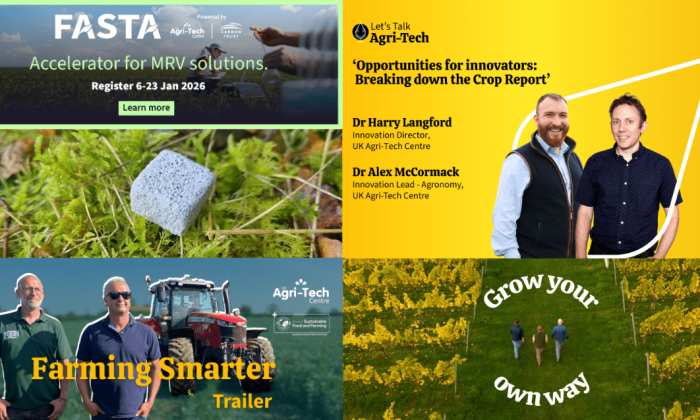Biodiversity is a widely used term, so much so that we are now celebrating and acknowledging an annual International Day for Biological Diversity on 22 May 2024. This year’s theme, “Be part of the Plan”, is a call to action for all stakeholders to halt the loss of biodiversity by supporting the implementation of the Kunming-Montreal Global Biodiversity Framework or, more simply; The Biodiversity Plan. This framework encompasses four goals and twenty-three targets to communicate to the world, with target ten specifically focused on agriculture. So how are the UK part of the plan and what actions are we taking to halt species loss and encourage nature recovery within our open spaces?
Natural Capital
The 25- Year Environment Plan sets out a long-term vision for protecting and enhancing the environment; committing to restoring habitats, creating new wildlife corridors and promoting sustainable land management practices. In the absence of a land-use strategy, DEFRA set out a new agricultural Environmental Land Management (ELM) policy which replaces the European Common Agricultural Policy (CAP). The ELM aims to reward farmers and land managers for delivering environmental benefits.
Publication of this policy has seen an explosion of nature markets and biodiversity accounting which aims to quantify UK ‘stocks’ and ‘flows’ of nature and natural resources; the objective being to financially reward positive action towards more biologically diverse landscapes.
Our ‘stocks’, also termed ‘natural capital’, encompass ecosystems and natural resources such as grasslands, woodlands, peatlands, soils, wood-pasture and wood-meadow, wetlands and rivers. Our ‘flows’, or ecosystem services, demonstrate the benefits to society and our economy that originate from healthy natural capital; such as agricultural production, decrease in nutrient run-off, decrease in carbon emissions, reduction to flood risk and biodiversity improvement.
The way that ecosystem services are packaged, valued and paid for are termed ‘nature markets’ and include carbon units and carbon markets, nutrient mitigation credits and biodiversity net gain units. They are a mechanism to unlock new funding and finance options to pay for activities that restore and protect the natural environment and can facilitate more resilient land management and farming business.
Biodiversity net-gain
Biodiversity net-gain is a way of quantifying and putting a monetary value on natural assets, to enable landowners and land managers to accurately assess their natural capital, and natural capital potential. It ensures that developers or companies are able to add value or a measurably positive impact on biodiversity compared to what was already there. It is now a UK government policy through the Environment Act in 2021, which states that all new developers over a certain size must ensure 10% increase on biodiversity in any new development.
It is calculated using a nationally standardised biodiversity accounting tool, currently in the form of Natural England’s Biodiversity Metric version 4.0, but also utilised by an increasing number of organisations and consultancies to facilitate, prepare and profit from the roll-out of ELM to land-managers and farmers.
The benefits of the metric are that it ensures a consistent and standardised approach accessible and transparent to all and makes it easier to verify the accuracy of ecological assessments. The downfall being that it is a simplified scoring system based on defined habitats, with potential for exploitation. Habitats in worse condition have more potential for improvement and therefore require less investment to generate biodiversity units, leading to unintended consequences of neglect or destruction of other habitats to create habitats with a greater ‘score’.
Emerging Markets
Existing nature markets are currently small scale, and in early development stages, but expected to grow rapidly in the coming years. However, if unregulated, there is a real risk of exploitation, double accounting and no tangible benefit to overall biodiversity. Corruption within the carbon markets is well known; research into Verra, (the world’s leading carbon standard) showed that more than 90% of their rainforest offset credits were likely to be “phantom credits” and did not represent genuine carbon reductions. To mitigate this, the UK government have published a nature markets framework to encourage best practice and to demystify these emerging markets.
The UK’s nature markets encompass voluntary nature-based carbon markets, compliance nature markets under the Environment Act in England, and emerging voluntary water quality and flood risk markets. The UK Woodland Carbon Code and UK Peatland Code are mature markets experiencing significant growth in carbon unit creation.
The introduction of these compliance markets for nutrient credits and biodiversity net gain in England is expected to fuel further expansion. Developers can purchase units from habitat creation projects to mitigate environmental impacts and aid nature recovery.
Ongoing innovation is piloting new nature markets, including carbon credits from various sources and initiatives like hedgerow restoration and natural flood management. Government support, such as through Defra’s Natural Environment Investment Readiness Fund, facilitates this innovation.
Moving forward, key steps in nature market development include policy and regulatory actions; refining market rules, standards, and infrastructure to ensure transparency and effectiveness. Collaboration with local and regional government and stakeholders is also crucial for coordinated market governance and growth across the UK.
These steps towards a more nature positive environment is promising for the promotion of biodiversity and have been developed to encourage best practice among landowners, farmers, developers, local authorities and businesses.
Risks of greenwashing, lack of biodiversity ‘permanence’ in dynamic ecosystems, ensuring genuine biodiversity gain, double counting and inequity between stakeholders means that mitigation and safeguards should be put in place to ensure demonstrable positive biodiversity and climate outcomes are achieved.
The UK Agri-Tech Centre offers a complete life-cycle of support, driving agri-tech innovation and adoption through access to world-class facilities, expert knowledge and business support, saving you time and accelerating your progress. We strengthen the connections between science, business and funders to accelerate research development business development and tackling the agri-industry’s most critical challenges. We are trusted to provide leadership and guidance to progress transformational change for people and the planet while stimulating economic growth.
By Katherine Wotherspoon, Strategic Impact Lead, the UK Agri-Tech Centre
Read Part 2 of this biodiversity series



